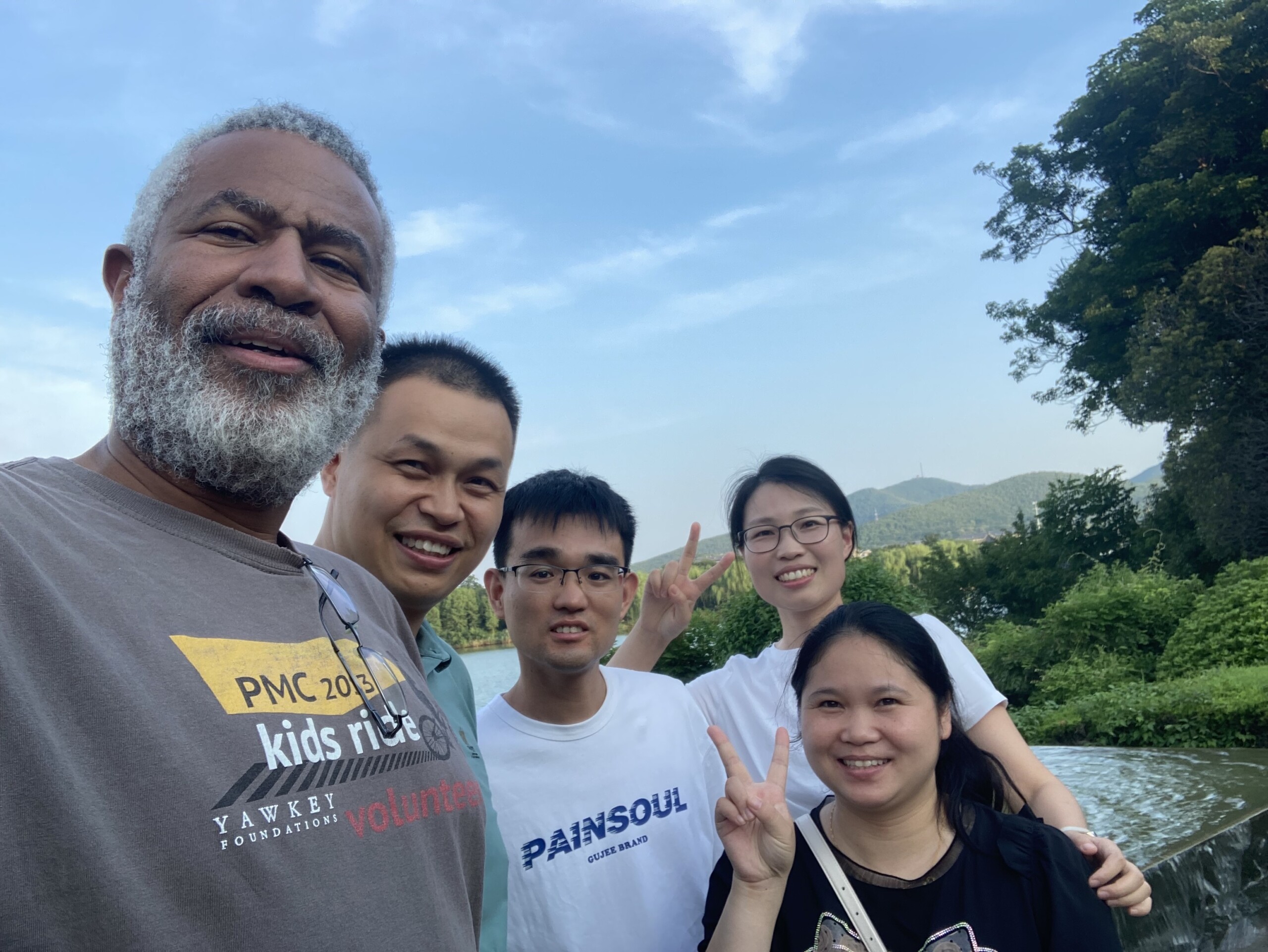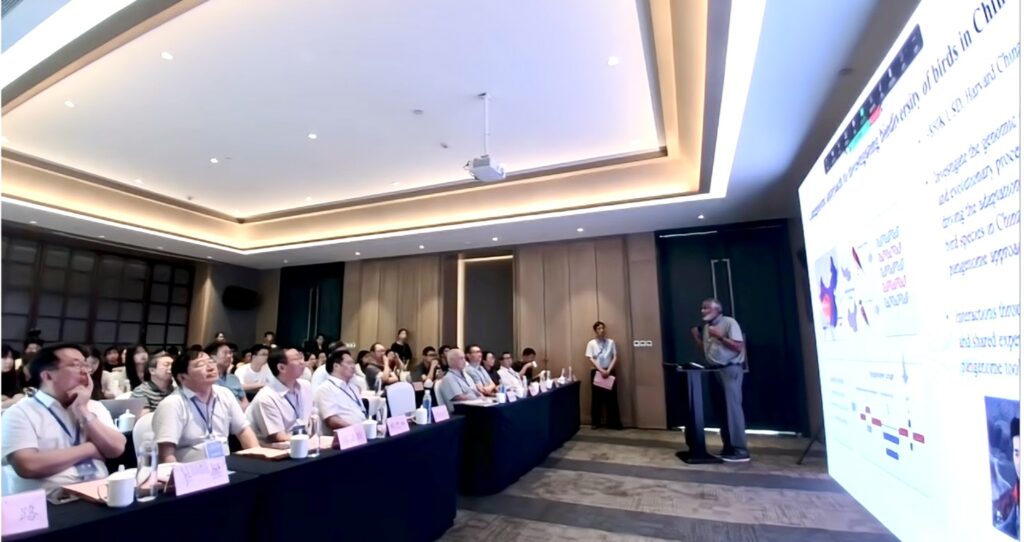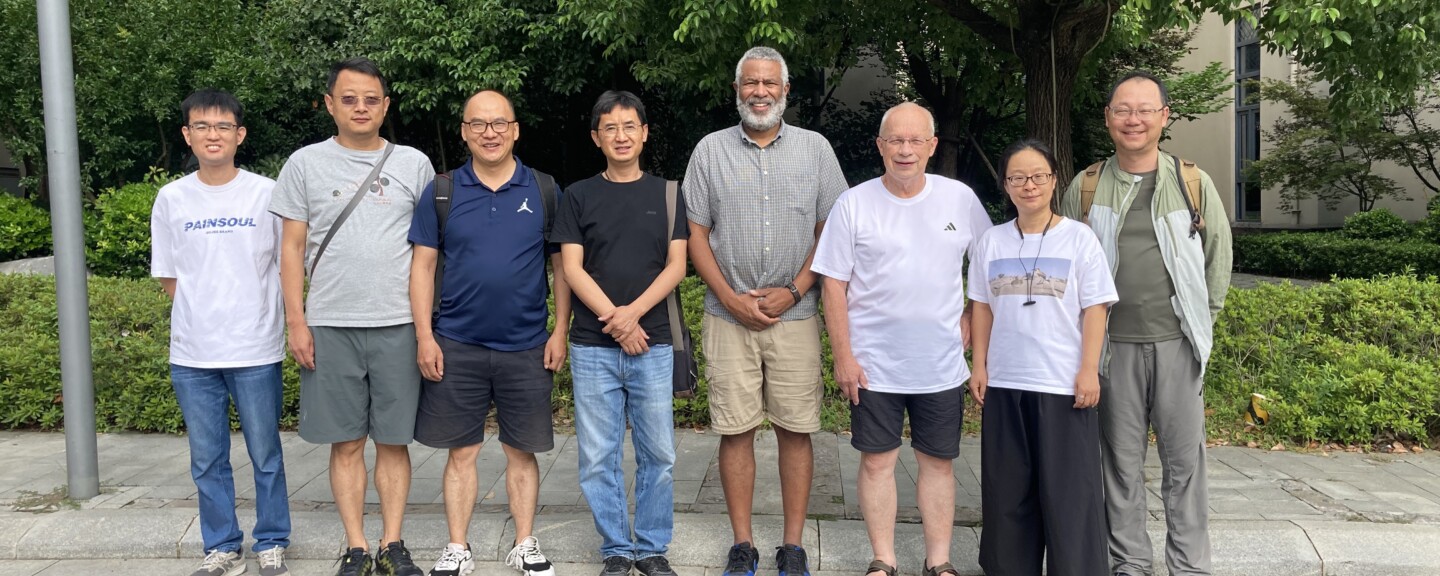Harvard China Fund in Action: Faculty Research Grant recipient Scott Edwards, Alexander Agassiz Professor of Organismal and Evolutionary Biology
April 15, 2024

Sometimes it’s the unplanned encounters that prove to be the most interesting. Scott Edwards, a world-renowned expert on genomic sequencing in birds and Harvard University professor of organismic and evolutionary biology, traveled to China last August to participate in an important symposium on desertification and biodiversity in Northwest China. The papers presented by the two dozen scholars from China, Europe, and the United States, were based on research being done in China’s driest areas. “We heard from a range of scientists, from ecologists to conservationists to evolutionary biologists about how climate change is influencing animal populations in China, especially in the dry regions,” says Edwards.
But it was the conversations during the tea breaks that Edwards found just as valuable. “It was an exciting networking opportunity, a chance to share information and see how scientists in China are trying to tackle climate change,” he says. On the sidelines, Edwards fell into conversation with Professor Gang Feng in the Department of Ecology, University of Inner Mongolia, who is producing important research on the effects of climate change on bird diversity and community change in China. “We hope to collaborate in the future!” Edwards says, “He’s an ecologist—his work is complementary to mine as an evolutionary biologist.”

While in China, Edwards also visited an agricultural station, where experts are conducting experiments on fruit trees and various crops. “We got to see how they are interested in developing strains of rice that are resistant to climate change,” he says.
Edwards’ participation in last summer’s international conference highlights the value of scientists from the United States and China sharing research—even at a time of political tension between the United States and China. “I am a firm believer that scientists can rise above and transcend political differences,” says Edwards. “Finding common interests is really exciting.”
Edwards plans to head to China again sometime soon with a research grant provided by the Harvard China Fund. He hopes to see his new Inner Mongolian colleague next time he is there.
For more information about Harvard China Fund’s faculty grants, please visit our faculty grants page.
